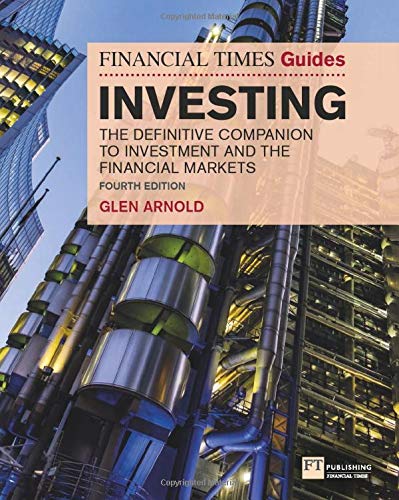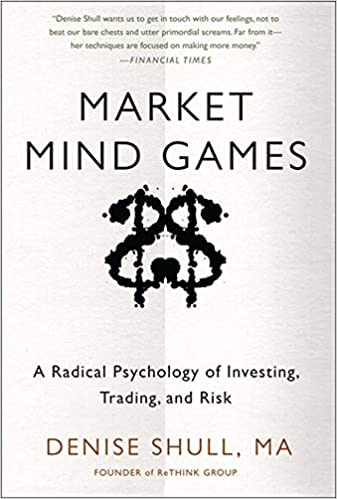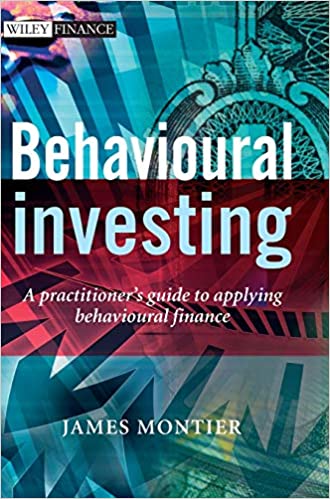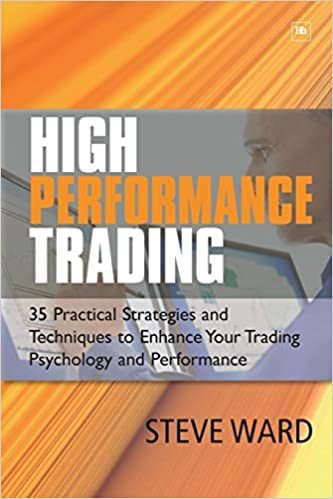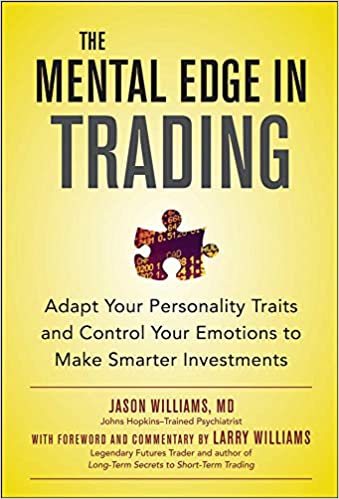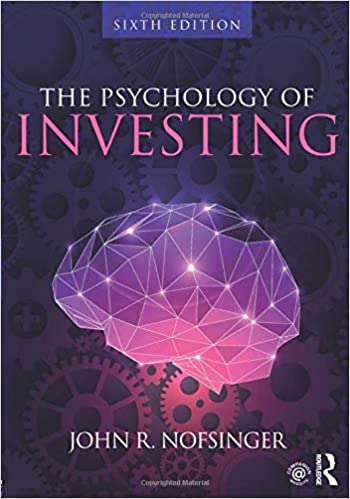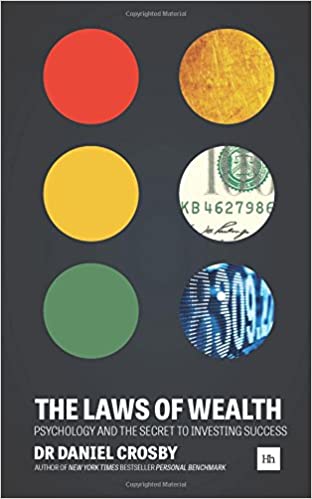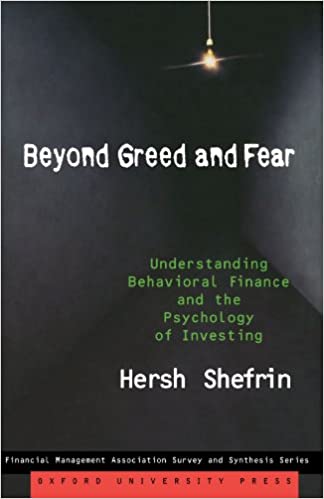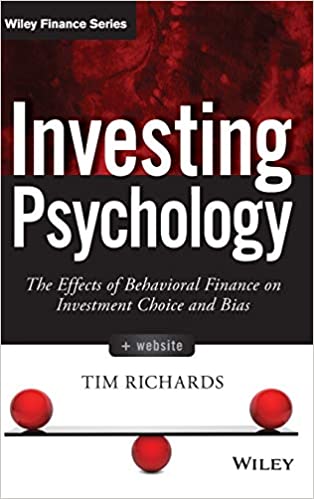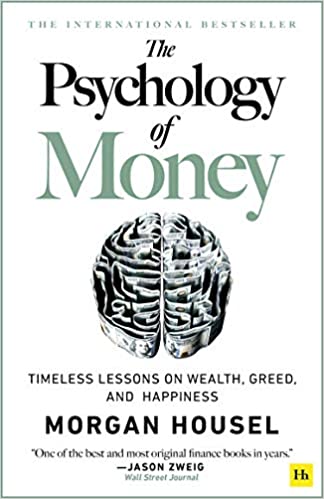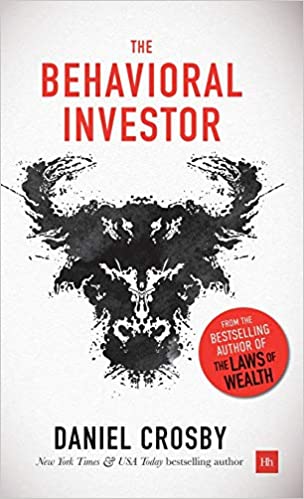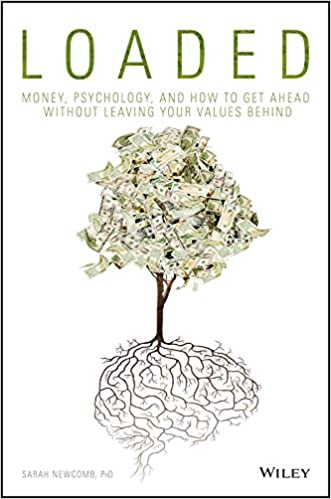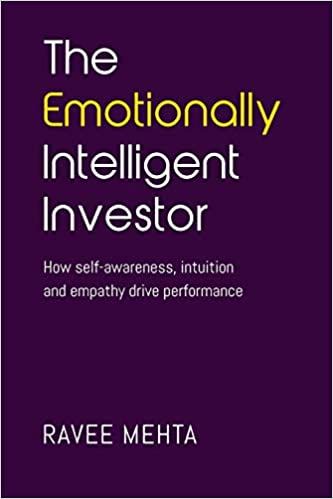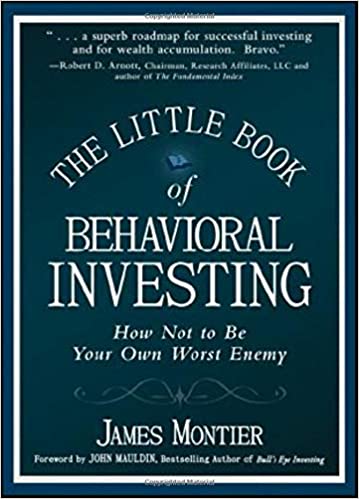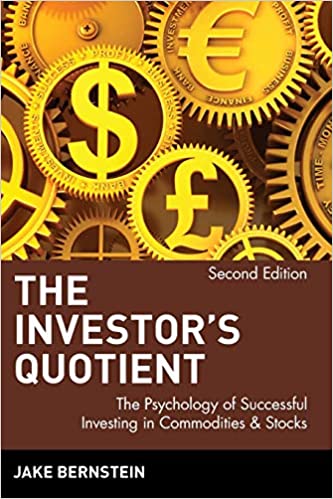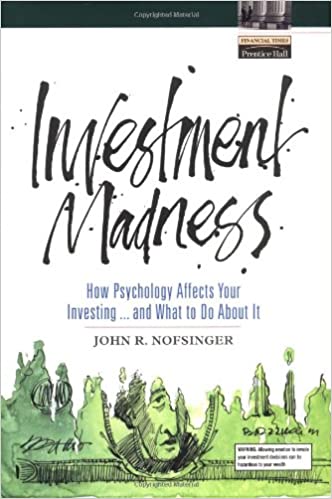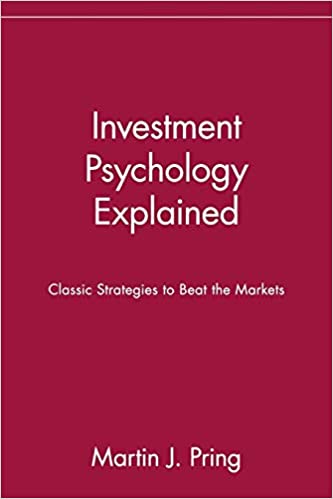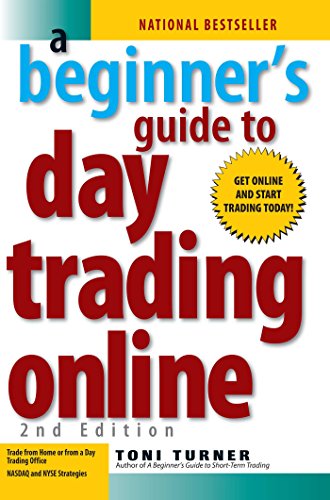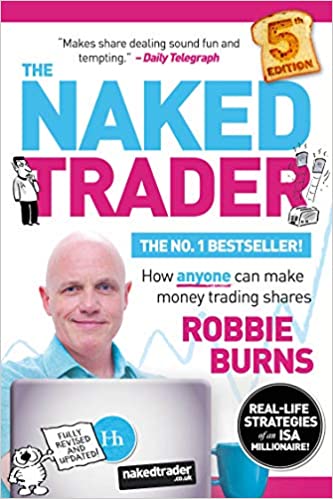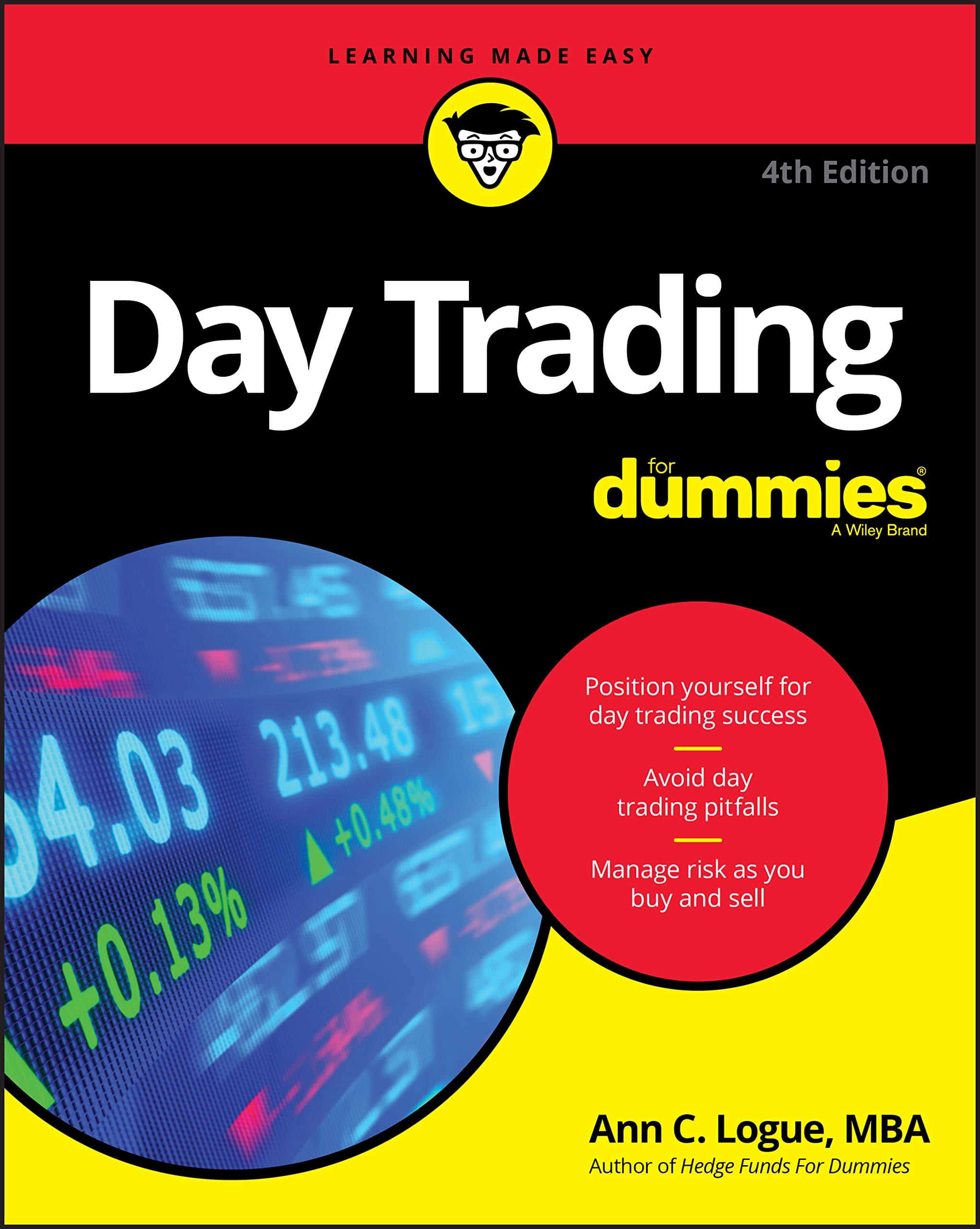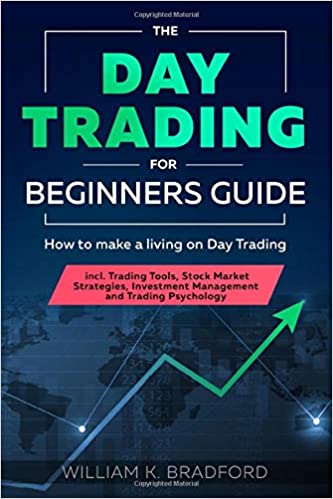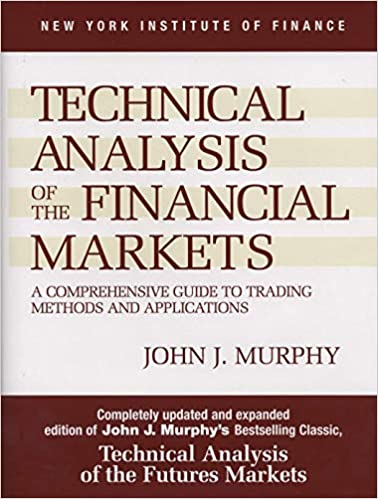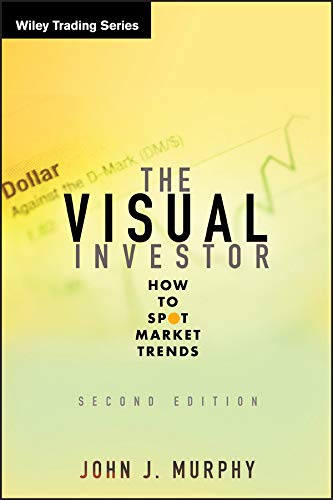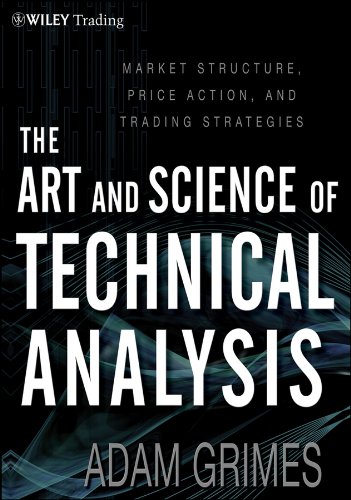Last updated: 21 December 2021. This page hosts our pick of the best behavioural investing books currently available.
What is behavioural investing?
Efficient market theory and economics principles teach us that markets are very efficient. To make microeconomic concepts simple, academics often assume that investors have perfect information and behave rationally.
Behavioural investing is the study and application of findings that show that investor behaviour is not always rational.
Investors who study the best behavioural investing books, aim to gain greater insight over how our minds work, and how this leads investors to behave irrationally from time to time. This provides an opportunity to take advantage of poor pricing and perform better than the market average.
The best example of investors behaving irrationally is seen in the flows of retail investor cash in and out of the stock market during the financial market cycle of boom and bust. In a perfectly rationale world, you'd expect flows to be constant (such as from regular dividend investors, buying shares each month), or to be heavier after a crash when shares feel better value.
Instead, what you see are large flows of cash into the stock market just before their peak. This pattern of buying at the top of the market happens each cycle, and ensures that a large subset of retail investors then suffer the maximum loss when the market enters a bear market phase. Broken and battered, we then see larger outflows from the market after a crash.
Therefore retail investors tend to actually buy high... and sell low. It sounds crazy, but evidence of this 'dumb money' phenomenon is very easy to find. Read any investing psychology book to find out why this happens.
All of the best investing books featured are beginner friendly and don't assume much prior knowledge. With prices ranging from £5 - £25, stocking up on a few of the best behavioural investing books can deliver the same value as an expensive seminar for only a fraction of the cost. They can even be read for free with Amazon's Kindle Unlimited free trial.
Click on any title below to see the latest price from Amazon, you'll be shocked at how affordable the most popular titles are. As an Amazon Associate, I earn a small commission from qualifying purchases which helps to support this site. This does not impact how I compile the list. Happy reading!
Discover prime books on investing and finance
No boundaries, just your curiosity- Invest with confidence
- Finance industries
- Real estate & real assets
- Exotic investments
- The bigger picture
Books reviewed
Financial Expert 2024 Book Awards
Gold Prize
Financial Times Guides: Investing by Glen Arnold
Behavioural investing books for day traders or finance professionals
Keeping your cool, maintaining focus and being more disciplined than the average market participant.Behavioural investing books for long term investors
Understand your own behaviour and the behaviour of other investors, to help you make strategic investment decisions.Lighter behavioural investing reads
More concepts, fewer statistics. Behavioural investing in a more accessible formatClassic behavioural investing books
Excellent behavioural investing books with classic insights which still apply todayDay trading books for beginners
Getting the basics right - our top pick of books about day trading in generalBooks about technical analysis & chart reading
It's the perfect pairing: investing psychology and technical analysis skillsDownload all these behavioural investing books for free with Kindle Unlimited
You DON'T even need a Kindle device to download booksHere's a useful tip that will save you £100+ on behavioural investing books. Sign-up to Amazon's Kindle Unlimited free trial, which offers access to all titles for free for 30 days.
- There's no obligation to continue with a paid subscription.
- You don't even need a Kindle to enjoy - any device will do.
If you're cost-savvy, you'll already be calculating the savings you could unlock and the knowledge you could gain by downloading 5 books over the next 30 days.
My Top 5 Behavioural Investing Books for 2022
Click covers to see latest reviews and prices1. Behavioural Investing - James Montier
Financial Expert Rating:
Synopsis:
"Behavioural investing seeks to bridge the gap between psychology and investing. All too many investors are unaware of the mental pitfalls that await them. Even once we are aware of our biases, we must recognise that knowledge does not equal behaviour. The solution lies is designing and adopting an investment process that is at least partially robust to behavioural decision-making errors.
- The only book to cover the applications of behavioural finance
- An executive summary for every chapter with key points highlighted at the chapter start
- Information on the key behavioural biases of professional investors, including The seven sins of fund management, Investment myth busting, and The Tao of investing
- Practical examples showing how using a psychologically inspired model can improve on standard, common practice valuation tools
- Written by an internationally renowned expert in the field of behavioural finance
Who this book is for:
Behavioral Investing by James Montier is my favourite behavioural investing book.
At 677 pages, Behavioural Investing is a detailed book, but never one that loses itself in technical or academic jargon.
It's simple a masterful exploration of a topic, in a way that can be understood by curious retail investors as well as the finance professionals the book clearly caters to.
James Montier isn't new to behaviour investing books - he's also written another book in this ranking series.
If you want to understand the biases that impact all of us when we invest, or want to understand useful indicators to help you detect when a market has become 'irrational'. This is the book for you.
James presents a combination of original ideas, together with what other experts (including classic markets thinkers such as Keynes) have contributed to the topic through their seminal works.
Financial Expert Rating:
Synopsis:
"From the New York Times bestselling author of the book named the best investment book of 2017 comes The Behavioral Investor, an applied look at how psychology ought to inform the art and science of investment management.
The Behavioral Investor takes a sweeping tour of human nature before arriving at the specifics of portfolio construction, rooted in the belief that it is only as we come to a deep understanding of why that we are left with any clue as to how we ought to invest.
'Rather arrogantly, I thought I knew everything there was to know about behavioural finance. After reading 'The Behavioural Investor' I realise I was wrong (ironically arrogance is one of the cognitive flaws that Dr Crosby writes about in his excellent book!).' -Robert Carver, author 'Smart Portfolios' and visiting lecturer at Queen Mary, University of London
Who this book is for:
The Behavioral Investor is the best selling behavioural investing book from Daniel Crosby which I couldn't wait to include in this list.
At 250 pages, the behaviour investor is novel-length, which clearly opens it up to a more casual reader, such as an armchair investor like myself!
Rated 4.3/5.0 on Amazon, reviewers there highlight the ease with which this book opens the door to the human psyche. While others deliver praise to Daniel for the way that the discussions are incredibly easy to follow.
The book not only highlights behavioural biases, but also explains how to actually address them when examining our own behaviour.
Daniel has created a deeply intriguing and enjoyable read which has caused me to really question my own investing practices at more than one point while reading.
I hope that you can also be inspired by the chapters as I was!
Financial Expert Rating:
Synopsis:
"High Performance Trading provides proven practical techniques and strategies to help traders of all abilities, experience levels and styles to enhance their trading performance and psychology.
- Discover how to avoid the common pitfalls of trading and how to take the practical steps that can set you up for trading success.
- Strengthen your trading discipline as you discover the art of flawless execution. - Develop and hone your mental edge through learning to think like a successful trader.
- Programme yourself for trading success with powerful mental conditioning techniques.
- Develop unshakeable focus and concentration and learn how to get into the trading zone.
- Understand how to achieve and sustain a core of trading confidence.
- Learn how to utilise simple techniques to manage your emotional states.
Build resilience to cope with trading stresses, and pressures and manage losses, setbacks and errors. - Move towards greater consistency and success in your trading performance.
Based on practical coaching and training interventions, personal experiences, the latest research and feedback, and advice from leading traders, trading coaches and trading psychologists, this book offers something for everyone who wants to become a better trader."
Who this book is for:
High-Performance Trading is my top pick for day traders who want to immerse themselves in behavioural investing to find an edge when trading.
On top of the biases and stresses felt by long term investors, day traders have even more psychological barriers to deal with:
- The weight of responsibility to produce an income
- Impatience when watching prices move for hours a day
- The self-doubt which can creep in after a short string of unsuccessful trades
- The urge to chase losses with larger bets to 'recoup' money lost through poor decisions
Given that these specific issues exist only for day traders and other short-term investors, it makes sense to choose a behavioural investing book which caters to day traders specifically.
A generic text won't do.
This book is currently rated 4.5/5.0 on Amazon, with over 30 readers giving the book a full five stars. Head on over to find out why!
Financial Expert Rating:
Synopsis:
"In The Little Book of Behavioral Investing, expert James Montier takes you through some of the most important behavioral challenges faced by investors. Montier reveals the most common psychological barriers, clearly showing how emotion, overconfidence, and a multitude of other behavioral traits, can affect investment decision-making.
- Offers time-tested ways to identify and avoid the pitfalls of investor bias
- Author James Montier is one of the world's foremost behavioral analysts
- Discusses how to learn from our investment mistakes instead of repeating them
- Explores the behavioral principles that will allow you to maintain a successful investment portfolio
Written in a straightforward and accessible style, The Little Book of Behavioral Investing will enable you to identify and eliminate behavioral traits that can hinder your investment endeavors and show you how to go about achieving superior returns in the process."
Who this book is for:
This is the perfect investing psychology book for someone who wants to understand this vital element of money mindset in fewer than 250 pages.
'The Little Book' series invites a variety of authors to contribute their concise and condensed take on a specialist finance genre.
James Montier has given his vast body of investing psychology knowledge the 'little book' treatment in this installment, published in 2010. It's now more than a decade old, but it's still incredibly relevant.
You'll love flicking through this guide at lightening speed as you discover more and more about how quick shortcuts and slow evolution has lead to us apes making some pretty appalling decisions which go against our best interest.
Financial Expert Rating:
Synopsis:
"From New York Times and USA Today bestselling author, Dr Daniel Crosby, comes the behavioral finance book all investors have been waiting for.
In The Laws of Wealth, psychologist and behavioral finance expert Daniel Crosby offers an accessible and applied take on a discipline that has long tended toward theory at the expense of the practical. Readers are treated to real, actionable guidance as the promise of behavioral finance is realised and practical applications for everyday investors are delivered.
Dr. Crosby's training as a clinical psychologist and work as an asset manager provide a unique vantage and result in a book that breaks new ground in behavioral finance. You need to follow the laws of wealth to manage your behavior and improve your investing process!"
Who this book is for:
It's Daniel's second book on this top 5 investing psychology books ranking, and it's equally as merited.
The Laws of Wealth precedes the Behavioural Investor, being published two years earlier in 2016.
In the book, Crosby presents a framework of timeless principles for managing your behavior and your investing process. He begins by outlining ten rules that are the hallmarks of good investor behavior, including 'Forecasting is for Weathermen' and 'If You're Excited, It's Probably a Bad Idea'.
He then goes on to introduce a unique new taxonomy of behavioral investment risk that will enable investors and academics alike to understand behavioral risk in a newly coherent and complete way.
The Financial Expert™ Best Behavioural Investing Book Challenge

I challenge you to read one behavioural investing book per month and see if it revolutionises your investing style!
The Financial Expert™ Best Behavioural Investing Book Challenge is commonly referenced by readers of this website, as being one of the inspirations for them to pursue the field of behavioural investing as a specialist knowledge area!
Let's see what it can do for you!
I'd like to set you an ambitious goal for the coming year.
You're on this behaviour investing books page, which means that you clearly have an interest, or at the very least a curiosity in the subject.
The best behaviour investing book challenge is a challenge I issue to all my readers on this page, to satisfy that curiosity and leave no stone unturned until you've gone halfway to mastering behavioural investing - all in the space of 12 months.
Here's the simple task I'm assigning you:
I challenge you to read one behavioural investing book each month for a whole year, and find your new favourite!
This isn't about filling up your bookshelf for the sake of aesthetics (or to provide a well-educated conference call background!). It's about changing your book purchase from a 'toe-dip' in the pool of behaviour investing information, to a full jump!
Take the plunge today to discover much more about behavioural investing and financial markets in general.
Having read many reviews of the behavioural investing titles featured in the shortlists above, one comment seems to be a recurring one:
"I'm so glad I read this book."
You certainly get the picture of investors suddenly having a barrier removed from their eyes. After reading these titles, they feel they finally understand 'how the markets work'.
This makes sense - because financial markets are nothing more than a collection of different people making economic decisions. If you can better understand the person behind those decisions, then you can better understand (or even predict) the trajectory that these markets could take.
Some guidance
- I found it helpful to stock up on books for the next few months, so that when a new month rolls around, my next book was my bed-side table asking to be opened!
- Pick a variety of styles. This will keep the challenge fresh and increase the diversity of opinion.
- Pick at least one book that you don't think you would enjoy, this book might be the one that surprises you the most!
- If you're time-starved, audio books are absolutely fine!
Where to begin?
My list of the best behavioural investing books above is as good as any place to start, as I have consciously included a mix of different writing styles to ensure that it caters to a wide audience.
Good luck!
Behaviour investing book insights: Two key biases
"The four most dangerous words in investing are: ‘this time it’s different."
Behaviour investing books - particularly the comprehensive titles like Behavioural Investing by James Montier, will cover behavioural investing from multiple angles.
At least a few chapters though, will be dedicated to behavioural biases.
What is a behavioural bias?
A behavioural bias is like a 'shortcut' that human tend to make when making decisions. They're unconscious frameworks that our brains use to interpret, store and use information to make decisions.
Although the word 'bias' has negative connotations, a bias is not always irrational. You can easily visualise scenarios in which biases could help an investor protect themselves from losses, increase theirs gains, or simply save them time analysing.
However, because biases are unconscious, they can often skew our decision making, and lead to a majority of investors taking a particular action, whereas the best personal finance books would have predicted investors to have taken more evenly-distributed choices.
In this way, biases become our foil, because they can create 'herd-like' behaviour, as the population of investors will tend towards a bias in response to new information. In this section of our behaviour investing book page, I'd like to highlight a few interesting biases which the books above will expand upon in detail.
1. Loss aversion
Loss aversion is the idea that human prefer to avoid a loss than to enjoy a gain. Said another way, they find losses more painful to deal with, than they find profits delightful.
This means that when an opportunity presents itself with a small possibility of a large loss, investors may fixate on the loss outcome, and this may steer them away from the investment.
It's easy to see how practitioners cater towards loss averse investors when they design structured products. These investment products tend to include a 'capital protection' clause, which may allow investors to escape the worst case scenario, at the expense of lower expected returns overall.
Due to loss aversion, some investors value this trade-off, despite the fact that (losses included) they are over-paying for the protection, and seeing lower risk-adjusted returns overall.
Read more: The best structured products books
Another side-effect of loss aversion is investors sitting on loss-making investments and refusing to sell, on the basis that this would crystallise a loss.
If an investor churns their successful investments, but hangs onto their poorly performing stock picks, this has the ultimate effect of loss-making or off-trend investments accumulating over time in an investor's portfolio.
2. Confirmation bias
Confirmation bias is the human habit of seeking out and paying more attention to information that confirms our existing point of view.
As an investor, when testing a theory (such as, is now the right time to buy shares), you should be able to see the benefit of looking for opinions of people who believe the opposite.
After all, if other sophisticated investors have reached the opposite conclusion to you, perhaps they have information that you do not. It makes sense to read widely to ensure that you are making a decision based on all the information.
Confirmation bias works against this quest for conflicting information. We find that we do not 'like' hearing views that disagree with our own, particularly if we have become invested in our own idea.
This provides a nudge away from articles which disprove our theories, and towards content which gives us a pat on the back, and the warm feeling of support and agreement.
Because investing is such an uncertain game, confirmation bias hinders investors from making good decisions, because in search for the comfortable thought that they are totally correct, they become pigeonholed in potentially niche viewpoints which aren't shared by other market participants.
These are just two of the 10+ behavioural biases which you can read more about in the behavioural investing books above.
Explore the best books in more genres
General personal finance
Trading the financial markets



